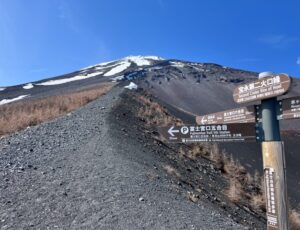
[Winter 2024] The 5 Most Beautiful Places in Japan to Visit in the Winter
Navigating the Japanese real estate market as a foreigner without permanent residency comes with its own set of challenges and considerations. In this comprehensive guide, we explore the possibilities for non-permanent residents to secure mortgages in Japan. We delve into the conditions and criteria set by financial institutions, offering insights into the unique requirements faced by those without permanent residency. Additionally, we present a detailed list of banks that explicitly extend home loans to non-permanent residents as of February 2024.
Jump to:
Can foreigners purchase real estate properties in Japan?
Can foreigners get a mortgage in Japan? What are the financing options?
Do you need to be a permanent resident to get a mortgage?
What Are the Criteria for Mortgage Approval in Japan?
What Are the Additional Requirements for Non-Permanent Residents in Japanese Mortgage Applications?
List of banks that offer mortgages to non-PR foreigners [February 2024]
Can foreigners purchase real estate properties in Japan?
Yes. In Japan, foreigners can buy and own real estate without encountering any restrictions or special conditions, in contrast to countries such as Canada, Singapore, and Thailand. You don’t need to live in Japan, hold a work permit, or have a local bank account to own property here (albeit you need to pay the full sum in cash if you are not taking out a mortgage). However, it is important to understand that buying property does not automatically grant residency. Nevertheless, having your own place might boost your chances if you plan on applying for permanent residency in the future.
Can foreigners get a mortgage in Japan? What are the financing options?
In short, yes, foreigners can take out a mortgage in Japan. However, to be eligible, you must be registered as a resident of Japan with a valid visa. Most financial institutions that provide affordable mortgages typically require permanent residency. But fret not – while a permanent residency may help you land on a mortgage with lower interest rates and favorable terms, such as Flat 35, some banks extend financing options to non-permanent residents, as outlined later in this article.
Do you need to be a permanent resident to get a mortgage?
As mentioned before, having permanent residency gives you more choices for mortgages with better terms and lower interest rates. However, some banks also provide home loans for foreign residents in Japan who don’t have permanent status, and you can find those listed below.
What Are the Criteria for Mortgage Approval in Japan?
According to a survey conducted by the Ministry of Land, Infrastructure, Transport, and Tourism, traditional mortgage lenders in Japan commonly assess loan applications based on the following top ten factors:
- Borrower’s age at the time of borrowing
- Borrower’s health and existing conditions
- Collateral value
- Borrower’s age at the time of payoff
- Borrower’s annual income
- Borrower’s length of employment
- Whether the borrower has a co-signer
- Lender’s area of operation
- Borrower’s debt-to-income ratio
- Financeable amount
- Borrower’s age at the time of borrowing
- Borrower’s health and existing conditions
- Collateral value
- Borrower’s age at the time of payoff
- Borrower’s annual income
- Borrower’s length of employment
- Whether the borrower has a co-signer
- Lender’s area of operation
- Borrower’s debt-to-income ratio
- Financeable amount
Some Notable facts:
– Borrower’s health conditions: Many banks consider obtaining coverage from creditor insurance (called “Dantai Shinyo Seimei Hoken,” or “Danshin” for short) crucial for taking out a mortgage. Danshin typically rejects applicants with certain medical history or pre-existing conditions, or those with higher health risks presumably due to their lifestyle or occupation. For instance, a history of visiting or seeking treatment from psychiatrists and mental clinics can negatively impact the evaluation. You will be required to disclose such health-related information upon application.
– Age: Typically, the borrower must be under 80 at the time of payoff. Some banks may view applicants in their twenties as unstable due to career uncertainty.
– Collateral value: Properties with higher collateral values are advantageous in mortgage applications, as banks auction off the collateral property to recover debt in case of default. Hence, securing a lender for kominka or older pre-owned homes might pose a challenge, as the book value for such properties in Japan is typically extremely low if not zero.
– Debt-to-income ratio: Maintaining a practical debt-to-income ratio is crucial in mortgage applications. Generally, keeping the mortgage payment below 20-25% of your annual income is considered practical. It’s noteworthy that many banks set the maximum limit at 30-35%. Adhering to these guidelines enhances your prospects of securing a favorable mortgage arrangement.
– Borrower’s credit record: Any missed credit card payments or other events that could damage your credit history can negatively affect your mortgage application evaluation.
What Are the Criteria for Mortgage Approval in Japan?
Length of Residency in Japan (Prospects of Permanent Residency): Some banks may consider it important that the applicant has prospects of living permanently in Japan (i.e., actively filing for permanent residency, holding a tenured job in Japan, and/or having a family in Japan) as it can be a sign of stability.
- Length of Residency in Japan (Prospects of Permanent Residency):
Some banks may consider it important that the applicant has prospects of living permanently in Japan (i.e., actively filing for permanent residency, holding a tenured job in Japan, and/or having a family in Japan) as it can be a sign of stability. - Amount of Down Payment:
It is advisable to maximize the down payment amount within your affordability. The general expected down payment ranges from 10 to 20% of the total property cost. Banks are typically more inclined to offer lower interest rates if the down payment to loan ratio is higher. - Stability/Reputability of the Borrower’s Employer:
Certain banks find it reassuring if the applicant’s employer is one of the larger corporations with a steady business and an excellent reputation. Conversely, if the applicant is a business owner, they may be required to provide additional documents proving the health and expected steady income of their business. - Co-signer (If the Borrower’s Spouse Is Japanese):
Some banks mandate a co-signer(s) residing in Japan. Having a Japanese spouse (and perhaps their side of the extended family) cosigning the mortgage can be advantageous. - Borrower’s Proficiency in Japanese:
Some banks require the applicant to be proficient enough in Japanese to comprehend discussions during meetings and the terms and conditions in the contract papers. However, certain banks allow lawyers, spouses, or professional translators to translate/interpret meetings and documents, or even provide English contract papers for reference.
List of banks that offer mortgages to non-PR foreigners [February 2024]
Here are some of the banks that explicitly offer home mortgages for foreigners without permanent residency (as of February 2024) :
*Information as of February 2024.
| Bank name | Mortgage product name* | Interest rate | Loan amount | Term | Special Requirements / Notes |
|---|---|---|---|---|---|
| Suruga Bank | Suruga Bank Mortgage (Special mortgage for foreigners) | Adjustable rates only: 1.475% – 2.875% | 300,000 – 400 million JPY | For a detached house: 1 – 40 years For an apartment: 1 – 50 years | -Applicants must be able to understand mortgage terms and conditions in Japanese. -Applicants must have prospects of living permanently in Japan. – A co-signer is not required. |
| SMBC Trust Bank | Mortgage | Adjustable: 1.13% – 1.38% Fixed: 1.78% – 2.13% | 10 – 500 million JPY | 1 – 35 years | -Applicants must be able to communicate in either Japanese or English (documents are available in English). |
| Tokyo Star Bank | Star Mortgage | Adjustable: 1.250% – 2.350% Fixed: 2.000%- 3.650% | 5 – 100 million JPY | 1 – 35 years | -Applicants must be registered residents in Japan. -Applicants must be able to read and write in Japanese. – Applicants must have been working full-time in Japan for at least a year. – Some documents are available in English. |
| Saison Fundex | Mortgage (Real estate loan) | Adjustable rates only: 3.75% – 5.15% | 1 – 500 million JPY | 1 – 30 years | – A co-signer is not required. |
| SBI Shinsei Bank | Real estate loan | Adjustable rates only: 2.80%〜4.10% | 3 – 500 million JPY | 1 – 35 years | – Applicants must have a zairyu card. – A co-signer is not required. |
| Asuka Credit Union | Home mortgage for foreigners without permanent residency | 1.45% (1.65% without a co-signer) | Up to 100 million JPY | 1 – 35 years | – A co-signer is required. – Applicants must qualify as union members (must reside in either Tokyo, Saitama, Hokkaido or the Tohoku area). – Applicants must be long-term residents in Japan (for at least 3 years). – Applicants must be able to understand mortgage terms and conditions in Japanese (with or without assistance from an attorney, a spouse, etc.) |
| Kyodo Housing Loan | My Home 100 | Adjustable: 2.475% Fixed: 3.25% -3.45% | 500,000 to 100 million JPY | 1 – 35 years | -A co-signer is not required. |



